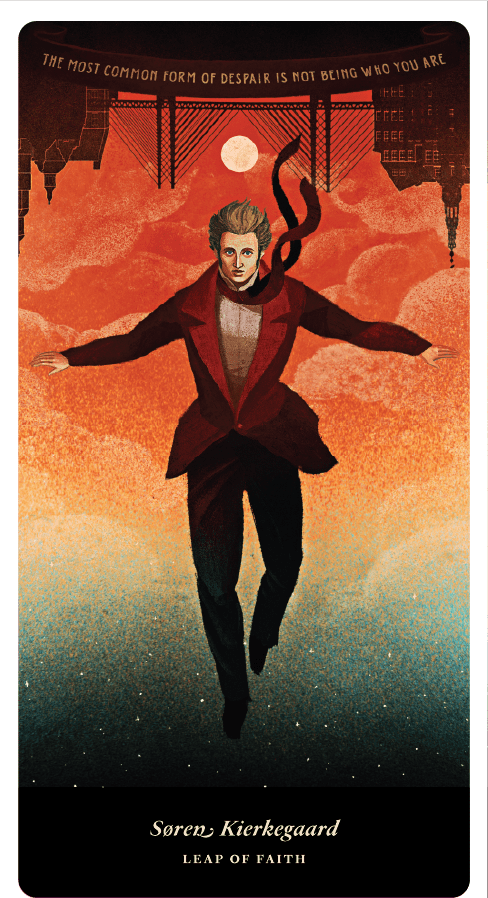Søren Kierkegaard | The Most Common Form of Despair Is Not Being Who You Are 1813 DENMARK- 1855 DENMARK
Søren Kierkegaard is a philosopher of a leap of faith. He believes that each of us has a unique truth that belongs to us alone. This is our subjective truth. It can only be found by going inwardly to discover our passion. Reason and calculating thought are powerless before passion. This is because there are no objective measures to weigh the value of a subjective truth. Rational calculations cannot help us find our passion, or guarantee that following it will lead us to happiness. A risk is always involved when choosing a way of life that has its certainty only in the self. This is why a leap of faith is required to act on a truth that is gauged by the passion with which we live our lives. When we pursue one way of life, we must close the door to other possible pathways available to us. Making a commitment to live our truth is how we exist authentically by giving our lives historical content. Not choosing a self is to live in despair.

